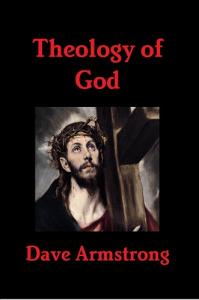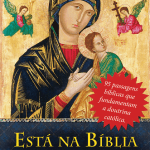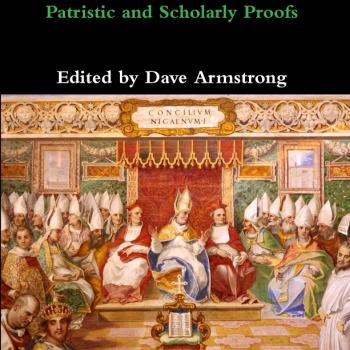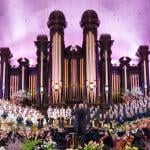Matthew 24:36 (RSV) But of that day and hour no one knows, not even the angels of heaven, nor the Son, but the Father only. (cf. Mk 13:32)
*
At that point in time, in the incarnate state — it’s not that the Son did not know before the incarnation and would not know at His exaltation or anything like that — but that there was some reason why, at that point in time, it was profitable for the Messiah, the Son, to not know. Those are His words. You’ve got to deal with them. If you have to look at the words written by Matthew [24:36] and come up with an interpretation that could not have possibly been what Matthew intended or anyone Matthew wrote to, intended, and could not have been known for centuries, millennia, after the point of writing, we’re no longer dealing with the Scripture being any kind of meaningful foundation for our beliefs, right? Can we agree with that? I hope we can, because that’s pretty obvious. [my italics and bolding reflect his own vocal accentuations]
James 3:1 Let not many of you become teachers, my brethren, for you know that we who teach shall be judged with greater strictness.
What we’re being told is [that] when it [Mt 24:36] says “nor the son” you have to take the fully developed later definitions of Christology, read them back in here, and do partitive exegesis. And that’s the easy way to do it. The easy out to Matthew 24:36 is to say, “well, that‘s the humanity and not the deity.” . . . And that’s normally how people try to respond to critics, and the critics go, “can you show me that from the text?”: especially since it says [cites the Greek wording] . . . “but the Father only.” But you’re saying it’s not the Father only. It’s the Father and the Son and the Spirit! . . . It’s this consistency thing, you know? [makes a mocking, grimacing expression] I know it’s a bit of a pain, . . . So if you wanna say, “well, to protect my formulations, I’m gonna go beyond what the text says, and I’m gonna say this is speaking of the Son only in His human incarnation, . . .” . . . You’re not gonna be able to prove it from the text. . . . You’re going beyond the text. You’re readin’ stuff into it that ain’t anywhere near it. You couldn’t exegete that if your life depended on it. But you’ve got your external systematic theology, and it tells you what the text says. [my italics and bolding reflect his own vocal accentuations]
Mark 10:18 And Jesus said to him, “Why do you call me good? No one is good but God alone.”*John 7:17 if any man’s will is to do his will, he shall know whether the teaching is from God or whether I am speaking on my own authority.*John 14:28 . . . the Father is greater than I,*Acts 7:55 But he, full of the Holy Spirit, gazed into heaven and saw the glory of God, and Jesus standing at the right hand of God;*Acts 10:38 how God anointed Jesus of Nazareth with the Holy Spirit and with power; how he went about doing good and healing all that were oppressed by the devil, for God was with him.*Acts 20:28 . . . the church of God which he obtained with the blood of his own Son.*1 Corinthians 11:3 . . . the head of Christ is God,*2 Corinthians 1:21 But it is God who establishes us with you in Christ, . . .*Galatians 4:6 . . . God has sent the Spirit of his Son into our hearts. . . .
John 2:19-21 Jesus answered them, “Destroy this temple, and in three days I will raise it up.” [20] The Jews then said, “It has taken forty-six years to build this temple, and will you raise it up in three days?” [21] But he spoke of the temple of his body.*John 10:17-18 For this reason the Father loves me, because I lay down my life, that I may take it again. [18] No one takes it from me, but I lay it down of my own accord. I have power to lay it down, and I have power to take it again; this charge I have received from my Father.”
John 20:17 Jesus said to her, “Do not hold me, for I have not yet ascended to the Father; but go to my brethren and say to them, I am ascending to my Father and your Father, to my God and your God.”
Philippians 2:5-11 Have this mind among yourselves, which is yours in Christ Jesus, [6] who, though he was in the form of God, did not count equality with God a thing to be grasped, [7] but emptied himself, taking the form of a servant, being born in the likeness of men. [8] And being found in human form he humbled himself and became obedient unto death, even death on a cross. [9] Therefore God has highly exalted him and bestowed on him the name which is above every name, [10] that at the name of Jesus every knee should bow, in heaven and on earth and under the earth, [11] and every tongue confess that Jesus Christ is Lord, to the glory of God the Father.
[O]ur second argument is as follows:-Just as we do in all other instances, so let us refer His knowledge of the greatest events, in honour of the Father, to The Cause. And I think that anyone, even if he did not read it in the way that one of our own Students did, would soon perceive that not even the Son knows the day or hour otherwise than as the Father does. For what do we conclude from this? That since the Father knows, therefore also does the Son, as it is evident that this cannot be known or comprehended by any but the First Nature. There remains for us to interpret the passage about His receiving commandment, and having kept His Commandments, and done always those things that please Him; and further concerning His being made perfect, and His exaltation, and His learning obedience by the things which He suffered; and also His High Priesthood, and His Oblation, and His Betrayal, and His prayer to Him That was able to save Him from death, and His Agony and Bloody Sweat and Prayer, and such like things; if it were not evident to every one that such words are concerned, not with That Nature Which is unchangeable and above all capacity of suffering, but with the passible Humanity. (Fourth Theological Oration [Oration 30]: The Second Concerning the Son, XVI)
JEROME [c. 343-420]: Whereat Arius and Eunomius rejoice greatly; for say they, He who knows and He who is ignorant cannot be both equal. Against these we answer shortly; Seeing that Jesus, that is, The Word of God, made all times, (for “By him all things were made, and without him was not any thing made that was made, [1 John 1:3]) and that the day of judgment must be in all time, by what reasoning can He who knows the whole be shewn to be ignorant of a part? This we will further say; Which is the greater, the knowledge of the Father, or the knowledge of the judgment? If He knows the greater, how can He be ignorant of the less?*HILARY [of Poitiers: c. 315-368]: And has indeed God the Father denied the knowledge of that day to the Son, when He has declared, “All things are committed to me of my Father?” [Luke 10:22] but if any thing has been denied, all things are not committed to Him.*AUGUSTINE [354-430], Serm., 97, 1: That He says that the “Father knoweth,” implies that in the Father the Son also knows. For what can there be in time which was not made by the Word, seeing that time itself was made by the Word!
JEROME: Having then shewn that the Son of God cannot be ignorant of the day of the consummation, we must now show a cause why He should be said to be ignorant. When after the resurrection He is demanded concerning this day by the Apostles, He answers more openly; “It is not for you to know the times or the seasons which the Father has put in his own power.” [Acts 1:7] Wherein He shews that Himself knows, but that it was not expedient for the Apostles to know, . . .*AUGUSTINE, Lib. 83, Quaest. Q60: That the Father alone knows may be well understood in the above-mentioned manner of knowing, that He makes the Son to know; but the Son is said not to know, because be does not make men to know.
[I]t is the constant practice of the incarnate Son to claim no knowledge beyond that which the Father has instructed him to use. This is true even of the gospel of John who indubitably teaches the divinity of Christ; cf. John 7:16; John 14:10.
John 7:16 So Jesus answered them, “My teaching is not mine, but his who sent me;*John 14:10 Do you not believe that I am in the Father and the Father in me? The words that I say to you I do not speak on my own authority; but the Father who dwells in me does his works.
John 5:19-23 Jesus said to them, “Truly, truly, I say to you, the Son can do nothing of his own accord, but only what he sees the Father doing; for whatever he does, that the Son does likewise. [20] For the Father loves the Son, and shows him all that he himself is doing; and greater works than these will he show him, that you may marvel. [21] For as the Father raises the dead and gives them life, so also the Son gives life to whom he will. [22] The Father judges no one, but has given all judgment to the Son, [23] that all may honor the Son, even as they honor the Father. He who does not honor the Son does not honor the Father who sent him.*John 5:26-27 For as the Father has life in himself, so he has granted the Son also to have life in himself, [27] and has given him authority to execute judgment, because he is the Son of man.*John 5:36 . . . the works which the Father has granted me to accomplish, these very works which I am doing, bear me witness that the Father has sent me.*John 6:37 All that the Father gives me will come to me; . . .*John 6:44-45 No one can come to me unless the Father who sent me draws him; . . . [45] . . . Every one who has heard and learned from the Father comes to me.*John 6:65 And he said, “This is why I told you that no one can come to me unless it is granted him by the Father.”*John 8:28 . . . I do nothing on my own authority but speak thus as the Father taught me.*John 12:49-50 For I have not spoken on my own authority; the Father who sent me has himself given me commandment what to say and what to speak. [50] And I know that his commandment is eternal life. What I say, therefore, I say as the Father has bidden me.”*John 14:24 . . . the word which you hear is not mine but the Father’s who sent me.*John 14:31 . . . I do as the Father has commanded me . . .*John 15:9-10 As the Father has loved me, so have I loved you; abide in my love. [10] If you keep my commandments, you will abide in my love, just as I have kept my Father’s commandments and abide in his love.*John 18:11 . . . ” . . . shall I not drink the cup which the Father has given me?”
Matthew 11:27 All things have been delivered to me by my Father; . . .*Matthew 20:23 He said to them, “You will drink my cup, but to sit at my right hand and at my left is not mine to grant, but it is for those for whom it has been prepared by my Father.”*Matthew 26:39 And going a little farther he fell on his face and prayed, “My Father, if it be possible, let this cup pass from me; nevertheless, not as I will, but as thou wilt.”
[M]any persons, thinking that this was unworthy of Christ, have endeavored to mitigate the harshness of this opinion by a contrivance of their own; and perhaps they were driven to employ a subterfuge by the malice of the Arians, who attempted to prove from it that Christ is not the true and only God. So then, according to those men, Christ did not know the last day, because he did not choose to reveal it to men. But since it is manifest that the same kind of ignorance is ascribed to Christ as is ascribed to the angels, we must endeavor to find some other meaning which is more suitable. Before stating it, however, I shall briefly dispose of the objections of those who think that it is an insult offered to the Son of God, if it be said that any kind of ignorance can properly apply to him.
As to the first objection, that nothing is unknown to God, the answer is easy. For we know that in Christ the two natures were united into one person in such a manner that each retained its own properties; and more especially the Divine nature was in a state of repose, and did not at all exert itself, whenever it was necessary that the human nature should act separately, according to what was peculiar to itself, in discharging the office of Mediator. There would be no impropriety, therefor in saying that Christ, who knew all things, (John 21:17) was ignorant of something in respect of his perception as a man; for otherwise he could not have been liable to grief and anxiety, and could not have been like us, (Hebrews 2:17.) Again, the objection urged by some–that ignorance cannot apply to Christ, because it is the punishment of sin — is beyond measure ridiculous. For, first, it is prodigious folly to assert that the ignorance which is ascribed to angels proceeds from sin; but they discover themselves to be equally foolish on another ground, by not perceiving that Christ clothed himself with our flesh, for the purpose of enduring the punishment due to our sins. And if Christ, as man, did not know the last day, that does not any more derogate from his Divine nature than to have been mortal. [my italics and bolding]
Pulpit Commentary explains the verse with great eloquence and insight:
The words have given occasion to some erroneous statements. It is said by Arians and semi-Arians, and modern disputants who have followed in their steps, that the Son cannot be equal to the Father, if he knows not what the Father knows. Alford says boldly, “This matter was hidden from him.” But when we consider such passages as “I and my Father are one;” “I am in the Father, and the Father in me” (John 10:30; John 14:11, etc.), we cannot believe that the time of the great consummation was unknown to him. What is meant, then, by this assertion? How is it true? Doubtless it is to be explained (if capable of explanation) by the hypostatic union of two natures in the Person of Christ, whereby the properties of the two natures are interchangeably predicated. From danger of error on this mysterious subject we are preserved by the precise terms of the Athanasian Creed, according to which we affirm that Christ is “equal to the Father, as touching his Godhead; and inferior to the Father, as touching his manhood … one altogether; not by confusion of substance, but by unity of Person,” etc. If, then, Christ asserts that he is ignorant of anything, it must be that in his human nature he hath, willed not to know that which in his Divine nature he was cognizant cf. This is a part of that voluntary self-surrender and self-limitation of which the apostle speaks when he says that Christ “emptied himself” (Philippians 2:7). He condescended to assume all the conditions of humanity, even willing to share the imperfection of our knowledge in some particulars. How the two natures thus interworked we know not, and need not conjecture; nor can we always divine why prominence at one time is given to the Divine, at another to the human. It is enough for us to know that, for reasons which seemed good unto him, he imposed restriction on his omniscience in this matter, and, to enhance the mysteriousness and awfulness of the great day, announced to his disciples his ignorance of the precise moment of its occurrence. This is a safer exposition than to say, with some, that Christ knew not the day so as to reveal it to us, that it was no part of his mission from the Father to divulge it to men, and therefore that he could truly say he knew it not. This seems rather an evasion than an explanation of the difficulty. But my Father only. The best manuscripts have “the Father.” “But” is εἰ μὴ, except. So Christ said to his inquiring apostles, “It is not for you to know the times or seasons, which the Father hath put in his own power” (Acts 1:7). These words do not exclude the Son’s participation in the knowledge, though he willed that it should not extend to his human nature. With this and such-like texts in view, how futile, presumptuous, and indeed profane, it is to attempt to settle the exact date and hour when the present age shall end!” Matthew 24:36
Bishop White even wrote a rare article on the same topic: “Just Too Long for a Twitter Thread!” (10-14-22). After condescendingly chiding those who disagree with him for (allegedly) being incompetently unfamiliar with “consistency” he does a bit of the same thing that he accuses others of doing:
[O]n a basic theological level, we must affirm in any context that the Spirit searches all things, even the deep things of God (1 Corinthians 2:10) and that, since the day and the hour is part of the divine decree from eternity past, Father, Son, and Spirit fully know that day and hour, always have, and always will.
This, of course, contradicts what the good bishop said in the second video that I cited above:
So if you wanna say, “well, to protect my formulations, I’m gonna go beyond what the text says, and I’m gonna say this is speaking of the Son only in His human incarnation, . . .” . . . You’re not gonna be able to prove it from the text. . . . You’re going beyond the text. You’re readin’ stuff into it that ain’t anywhere near it. You couldn’t exegete that if your life depended on it.
Very well, then. There are only so many options. If it’s not talking about Jesus’ human nature (White mockingly denied that), then it must include or reference His Divine Nature, which in turn means that He was somehow ignorant not in just His human nature, but also in His Divine Nature. And that contradicts the written statement above and the Hypostatic Union.*
To cite his own words: “It’s this consistency thing, you know? I know it’s a bit of a pain, . . .” Yes, it especially is a pain when White chides all who disagree with him for being woefully inconsistent, and then proceeds to so precisely the same thing himself.
I was curious if the illustrious bishop had written about Matthew 24:36 elsewhere on his site. I found the article, “James White is Teaching Heresy!” (7-1-22),in which he mocked the Hypostatic Union (or, Two Natures of Christ), decreed at the Council of Chalcedon in 451, and accepted by the vast majority of historic Christians (who haven’t watered-down and compromised their faith with the rotgut of theological liberalism), on his Dividing Line show:
Who’s speaking in Matthew chapter 24? Well, he [a critic of his] wants to divide Jesus up, so that you have a part of Jesus speaking. The other part of Jesus just goes . . . “I know exactly when that is. Ha ha ha ha ha!” Right? We got the schizo Jesus going on again . . . I don’t get to [as an evangelist] do the “flip the human side of Jesus on, flip that off [then] the divine side” . . . [makes silly mocking noises]. That’s fun! That’s fun; that’s easy. You expect someone to go along with that? . . . [this is] not taking the biblical foundations of Chalcedon seriously, and [it’s] giving us a schizo Jesus. . . . The real issue is whether we are going to root and ground our proclamation in the words of Scripture . . . that objective, Spirit-born reality . . . or whether we’re gonna subjugate that to our theological systems. . . . sometimes in the same sentence: “human divine” [chuckling]: this type of thing? That’s not gonna fly. (1:10:09-1:14:40; my italics and bolding reflect his own vocal accentuations)
. . . our Lord Jesus Christ, at once complete in Godhead and complete in manhood, truly God and truly man, . . . recognized in two natures, without confusion, without change, without division, without separation; the distinction of natures being in no way annulled by the union, but rather the characteristics of each nature being preserved and coming together to form one person and subsistence, not as parted or separated into two persons, but one and the same Son and Only-begotten God the Word, Lord Jesus Christ . . .
At the heart of this definition are the four negative statements I’ve italicized above.
Without confusion: The Lord Jesus Christ is not what you get when you mix blue and yellow together and end up with green. He’s not a tertium quid (a third thing), the result of mixing a divine and human nature.
Without change: In assuming human flesh, the Logos did not cease to be what he had always been. The incarnation affected no substantial change in the divine Son.
Without division: The two natures of Christ do not represent a split in the divine Person. Jesus Christ is not half God and half man.
Without separation: The union of the human and divine in the person of Jesus Christ is a real, organic union, not simply a moral sympathy or relational partnership.
This may seem like needless theological wrangling, but Chalcedon’s careful definition is meant to preserve the biblical teaching that (1) the divine nature was united, in the person of the Son, with a human nature (John 1:14; Rom. 8:3; 1 Tim. 3:16; Heb. 2:11-14) and (2) the two natures are united in only one divine Person (Rom. 1:3-4; Gal. 4:4-5; Phil. 2:6-11). As Chalcedon puts it, the characteristics of each nature are preserved—in no way annulled by the union—even as they come together in one person (prospon) and one subsistence (hypostasis).
That’s Christianity, folks: expressed by a Protestant, in agreement with Catholicism and Eastern Orthodoxy. This is orthodox Christology. But how pathetic that James White — an educated man who knows much better than this — can only conceive of such necessary, Bible-based theological nuance and complexity as a “schizo Jesus.”
He’s never sunk this low. Pray for the man. He and his readers who gobble up this blasphemous garbage will both desperately need it, the longer he continues with this vain and outrageous, devil-inspired folly.
***
Practical Matters: Perhaps some of my 4,000+ free online articles (the most comprehensive “one-stop” Catholic apologetics site) or fifty books have helped you (by God’s grace) to decide to become Catholic or to return to the Church, or better understand some doctrines and why we believe them.
Or you may believe my work is worthy to support for the purpose of apologetics and evangelism in general. If so, please seriously consider a much-needed financial contribution. I’m always in need of more funds: especially monthly support. “The laborer is worthy of his wages” (1 Tim 5:18, NKJV). 1 December 2021 was my 20th anniversary as a full-time Catholic apologist, and February 2022 marked the 25th anniversary of my blog.
PayPal donations are the easiest: just send to my email address: [email protected]. You’ll see the term “Catholic Used Book Service”, which is my old side-business. To learn about the different methods of contributing, including 100% tax deduction, etc., see my page: About Catholic Apologist Dave Armstrong / Donation Information. Thanks a million from the bottom of my heart!
***
Summary: Bishop “Dr.” [???] James White despises & mocks the Hypostatic Union, declared at Chalcedon in 451: basically characterizing the Two Natures as a “schizo Jesus.”














